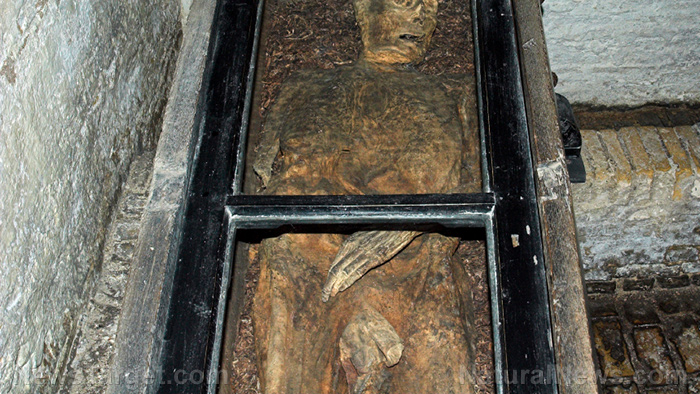
India's capital New Delhi on Saturday, April 24, recorded its highest single-day tally of supposed coronavirus (COVID-19) deaths after 357 people died within 24 hours. The city of around 30 million also recorded over 24,000 new cases in the same span of time. These deaths are taking place after covid vaccinations have surged across the country.
The COVID-19 death count for New Delhi as of that day stands at nearly 14,000 with a positivity rate of 32.27 percent.
The current situation in New Delhi is vastly different from where the city was in March, when an average of only four people died each day. (Related: New Delhi under weeklong coronavirus lockdown as "cases" surge in Indian capital.)
"Delhi's situation is really bad," said Sunil Kumar Aledia, executive director of a homeless charity in New Delhi. "The administration has failed. There's panic among the people."
Since the lockdown began on April 16, Aledia has been helping provide for people with COVID-19 as well as their families.
"Delhi's chief minister, Arvind Kejriwal, mentioned earlier to the public that the state's oxygen stock was sufficient only for two days. He shouldn't have talked this way. It spread a lot of panic. He still had two days to coordinate," said Aledia.
"People are looking for beds and oxygen cylinders. These are materials. The reality, including people's response to the situation, is linked to their mental state of being."
According to data issued by the city's health department, there are around 93,000 active COVID-19 cases in the city. A little over 50,000 of the active patients are in home isolation, with the remaining admitted to hospitals, COVID-19 care centers and other temporary coronavirus treatment centers set up all over the city.
New Delhi crisis overwhelms graveyards and crematoriums
The unprecedented number of deaths in New Delhi has pushed the city's graveyards and crematoriums to the brink of collapse. Many of the designated sites are being forced to skip individual ceremonies and similar Hindu rituals due to the immense number of people who need to be buried or cremated at any given time.
This is a serious issue, as Hindus believe these rituals help release souls from the cycle of rebirth.
In the Sarai Kale Khan cremation site, around 60 to 70 bodies are being handled every day even though the facility only has the capacity to perform 22 cremations daily. The site had to erect at least 100 new platforms in green spaces all over the complex in anticipation of the daily deaths increasing even further.
"There is a lot of pressure to complete the construction of these new platforms," said one person working for the crematorium.
Sarai Kale Khan's staff has also been overworked because of the number of cremations they have to perform every day. The situation has gotten so bad for the workers that relatives of the dead have often had to help in the cremation process, such as by moving and adding firewood.
Mohammad Shameem, the head gravedigger of New Delhi's largest Muslim cemetery, related that over 1,000 people have been buried there since the pandemic began. "I fear we will run out of space very soon," said Shameem.
Other state and city governments in India have experienced similar concerns. The government of Karnataka in southwestern India recently told local media outlet NDTV that the state government initiated the process of identifying land it can develop to set up temporary crematoriums.
In the city of Bhopal, many crematoriums were forced to increase their capacity from around a dozen funeral pyres each to more than 50. In the Bhadbhada Vishram Ghat crematorium, more than 110 people were cremated on Saturday.
"The virus is swallowing our city's people like a monster," said Mamtesh Sharma, an official at a Hindu crematorium. "We are just burning bodies as they arrive. It is as if we are in the middle of a war."
Learn more about how India is handling the coronavirus pandemic by reading the latest articles at Pandemic.news.
Sources include:
Please contact us for more information.




















